Influencer marketing serves as an important bridge between brands and most consumer groups these days. Just about every conceivable demographic is represented in some niche segment that has established influencers
With a projected market growth reaching $24 billion in 2024, understanding how to find fashion influencers who resonate with a brand’s identity and audience is crucial for tapping into this dynamic market.
We’ve been helping brands find the right influencer collaborations for years. In that time, we’ve learned a thing or two about fashion brand marketing and the best types of influencers that fit the industry.
In this post, you’ll find our best tips for finding influencers for your fashion brand.
Understanding the Fashion Influencer Landscape
Fashion influencers are everywhere on social media, and they’re not just about high fashion. You’ll find them on platforms like Instagram, YouTube, and TikTok, reaching huge crowds. What’s cool is that they don’t stick to just one kind of fashion.
They might dive into everything from everyday streetwear and high-end designer labels to eco-friendly threads.
This mix shows they can catch the eye of different types of shoppers. As more of us use social media to find our next favorite outfit, these influencers become key in setting trends and shaping what we buy.
When you’re looking for a fashion influencer, understand that you won’t always have to work with one that’s narrowly focused on your audience. It can be even better if the influencer can expose your brand to shoppers who wouldn’t otherwise be interested in your type of fashion.
Choosing the Right Influencer
Picking the right fashion influencer is more than just going for the biggest names. It’s about finding someone who really resonates with your brand and your audience. Here’s how you can do it:
Understand Your Audience: Knowing who you’re trying to reach is the first step. This helps you figure out which influencer’s style and audience will line up with your brand.
Do Your Research: Don’t just skim through profiles. Dive deep into what potential influencers are all about—what they post, how they engage with their followers, and the kind of influence they wield.
Check for Authenticity: It’s not just about numbers. You need someone who genuinely connects with your audience and can truly get them excited about your brand.
Think About Scale: Consider whether you need a micro-influencer, who might have a smaller but highly engaged following, or a macro-influencer, who can dramatically increase your reach.
By being strategic about who you team up with, you can make sure your influencer collaborations actually get the results you want. This approach keeps your efforts focused and effective, whether you’re looking to make a big splash or connect with a niche market.
Key Characteristics of Fashion Influencers
A big mistake people often make is assuming that one influencer is just as good as another and as long as the numbers are there, there’s no need to dig too deeply.
Unfortunately, that usually doesn’t work out too well. Let’s start with the foundational things you should look for in a fashion influencer.
- Wide Social Media Following: They boast substantial followings across multiple platforms, making them valuable partners for brands looking to expand their reach. A lot of followers on one platform usually perform worse than modest followers on many.
- Diverse Expertise: Their areas of specialization can range from streetwear to luxury and sustainable fashion, offering brands various collaboration opportunities.
- Influence on Consumer Behavior: A mere endorsement or shoutout from a fashion influencer can significantly affect clicks and sales, highlighting their power to sway consumer preferences. On the other hand, some influencers can’t sell 36 t-shirts to 2 million followers. Generally, audience engagement is the main metric that will show you if the influencer has actual influence (more on that further down).
Using Social Media and Influencer Platforms To Identify Candidates
Influencer platforms are a great tool to get you started and continuously monitor how your influencer campaigns are doing.
These tools offer a multitude of features designed to streamline the identification and management of potential influencer partnerships. Here’s how we can navigate this process effectively:
- Use Search Filters: Start with precise search options on influencer platforms to find influencers who match your target audience’s demographics and interests. This ensures a better alignment with your brand.
- Automate Outreach and Follow-ups: Implement automated systems like drip campaigns to manage and maintain communication with potential influencers efficiently, saving time and maintaining consistency.
- Monitor Campaign Performance: Leverage tools to track the performance of influencer campaigns. Analyze which partnerships drive the most engagement and sales, and then focus your budget on those influencers.
- Simplify Logistics: Use your CRM system to streamline the dispatch of products to influencers. This ensures that they receive everything they need on time for creating content, which helps in maintaining a smooth workflow.
- Build Authentic Relationships: Prioritize genuine interactions and personalized outreach. Focus on creating long-term partnerships with influencers who are genuinely interested in your brand, which can lead to more authentic and impactful promotions.
By following these steps, we can efficiently identify, manage, and collaborate with fashion influencers, ensuring our brand’s message is amplified authentically and effectively.
Engagement and Authenticity Evaluation
When embarking on how to find fashion influencers, it’s paramount to delve into two critical aspects: engagement and authenticity. These factors are not just buzzwords but the linchpins of successful influencer collaborations. Below, we break down the process into actionable steps and considerations.
Evaluating Engagement
- Engagement Metrics: Start by examining the influencer’s engagement metrics such as likes, comments, shares, and saves. These figures should be in healthy proportion to their follower count, indicating genuine audience interaction.
- Quality of Interactions: Beyond numbers scrutinize the nature of interactions. Meaningful comments and thoughtful conversations signal an engaged community that values the influencer’s content.
- Content Analysis: Assess the quality and relevance of the influencer’s content. Is the influencer starting meaningful conversations with their audience or just posting into the void?
- Audience Demographics: Utilize tools to analyze the influencer’s audience demographics. Ensuring their followers align with your target market is crucial for campaign effectiveness.
Authenticity Checks
- Brand Alignments: Investigate the influencer’s past collaborations. Genuine alignments with brands, evidenced by selective and strategic partnerships, highlight their authenticity.
- Fraud Detection: Be vigilant for signs of purchased followers or likes. A disproportionate engagement rate or a sudden spike in followers can be red flags.
- Responsiveness Test: Observe the influencer’s communication style with you, their followers, and partners. Prompt and genuine interactions are indicative of a reliable influencer.
Reaching Out to Fashion Influencers (What To Do and What NOT TO)
Preparation is Key
Before you even think about reaching out, it’s crucial to ensure your brand is visible and active on platforms like Instagram. This builds a natural presence that influencers can easily recognize.
Make sure there’s a good fit between your brand’s style, and values, and those of the influencers you admire.
Engaging with their content through likes, comments, and shares can also warm them up to your outreach. Additionally, have your media kit polished and ready to showcase what makes your brand special.
Crafting Your Email Pitch
When it’s time to send that email, keep it straightforward and personal.
A concise email shows respect for the influencer’s time and demonstrates that you value clarity and organization. Personalize your message to reflect that you’ve really taken the time to understand their influence and audience.
Balance professionalism with a touch of your unique brand personality to make your pitch stand out.
Outreach Strategy
Approaching influencers shouldn’t be daunting. Embrace the process with confidence and a firm belief in what your brand has to offer.
Always communicate from a standpoint of mutual benefit; you’re not just asking for their endorsement, you’re proposing a partnership that will be equally rewarding.
When using direct messages for outreach, lead with the specific value you bring to them. Be upfront about partnership terms and what you both stand to gain from the collaboration.
Building and Protecting Relationships
Once you find great influencers, it’s worth investing some effort in keeping the relationship going.
Transparency and clear communication are key in fostering trust and ensuring that expectations are met on both sides. Respect their creative space and audience by aligning your products naturally with their content.
Aim for long-term engagements that go beyond one-off projects to build deeper, more meaningful collaborations.
Conclusion
Finding the right fashion influencers is more than just picking the ones with the biggest followings—it’s about sparking genuine connections that resonate with your brand.
Dive deep to find influencers who not only showcase your style but truly engage their audience and embody your values.
Keep your approach personal and your communications clear to build lasting partnerships. Done right, influencer marketing isn’t just effective; it’s transformative, driving your brand forward in a bustling fashion world.
If you need help finding influencers, let us help. We know how to get your fashion brand discovered through influencer marketing coupled with a full-stack marketing strategy.

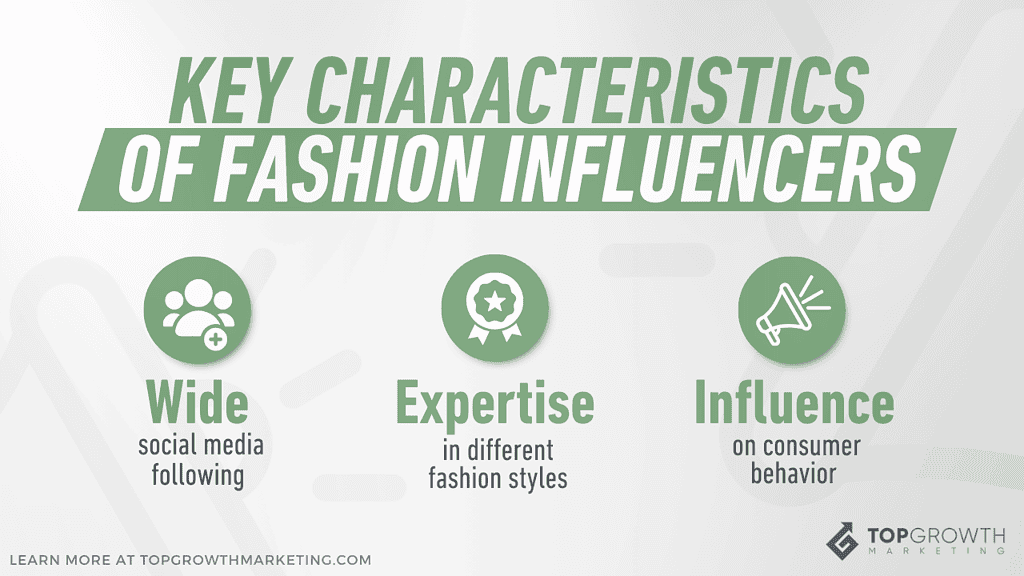

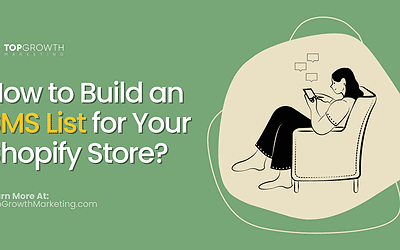
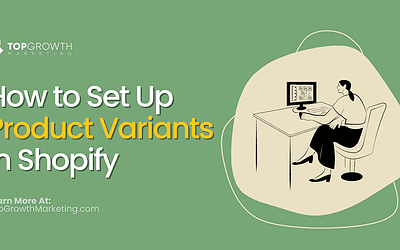
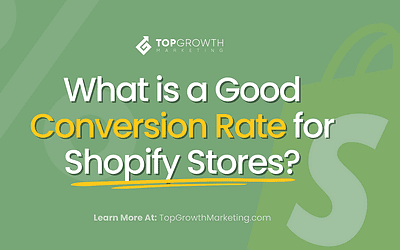
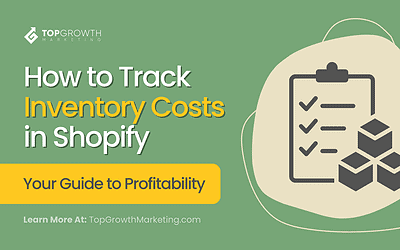
0 Comments